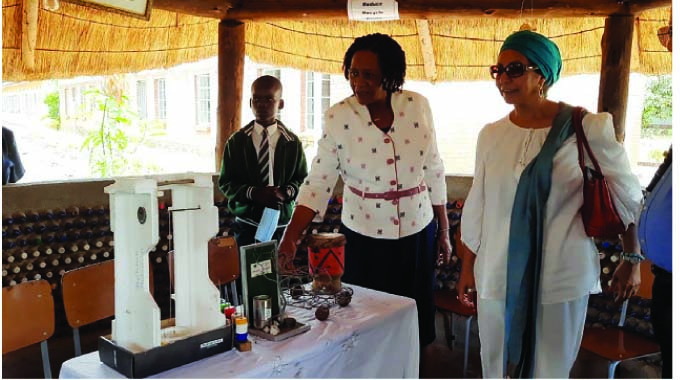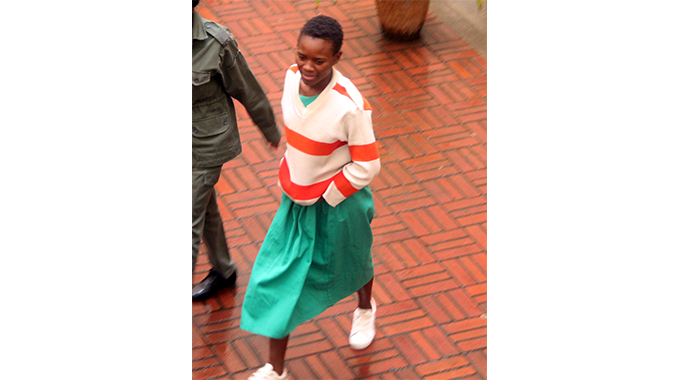Schools cash in on competence- based curriculum

Leonard Ncube, Victoria Falls Reporter
THE competence-based education curriculum adopted by Government to capacitate learners with lifelong skills and commercialise learning institutions is already paying dividends.
As early as early childhood development level, learners are already starting projects and their schools are making money.
Schools heeded the Government call to embark on income generating projects within their areas, sometimes in collaboration with communities, so as to reduce the cost of education.
Education directors and Permanent Secretaries from 26 countries that are attending the Strategic Choices for Education Reform (SCER) in Eastern and Southern Africa conference being hosted by the Ministry of Primary and Secondary Education, World Bank and Global Partnership for Education in Victoria Falls yesterday visited six schools in and around the city.
They went to Baobab, Chamabondo, Lesedi, Farm School primary schools as well as Mosi-oa-Tunya High and Mkhosana Adventist Secondary School.
They split up and were allocated schools to visit before reporting back on what they observed.
The delegates sought to see how debates at the conference are being implemented in Zimbabwean schools and appreciate the different models of education that have been adopted.
While also noting some shortcomings, especially lack of feeding programmes for learners by the time of the visit, the delegates commended the country’s education system as one that can be adopted in their countries.
They appreciated computerisation of schools and practical learning especially in farming, environment management and recycling, as well as respect for culture as a learning tool.
Some of the schools exhibited craftwork products, traditional cloths, traditional foods and curios made by learners, on the sidelines of the forum.
At Chamabondo primary, where Primary and Secondary Education Minister Dr Evelyn Ndlovu visited, delegates were shown a recycling pavilion done by the Ozone Defenders Club comprised of learners.
The pavilion is an open-sided grass thatched round shed with its walls made of plastic bottles while the brick-like floor tiles were made of mixture of sand and broken glasses as part of the school’s recycling project.
The school, with an enrolment of 1 538 learners, also has a biogas digester which it is using to produce energy for its kitchen using waste.

Dr Evelyn Ndlovu
There are also poultry, piggery, rabbit and garden projects while the cultural village depicts the African way of life with traditional dance and music
Dr Ndlovu, who earlier officially opened the conference, said the projects are testimony to capacitation of young people through education.
“This is impressive to have young learners doing such wonderful work. We have engineers here and all we need to do is capacitate them,” she said.
The foreign delegates commended the schools for being organised, self-managed and preparing learners for the market and to be employers.
In a follow up interview, Primary and Secondary Education Permanent Secretary Mrs Tumisang Thabela said the school visit was part of the agenda to as countries in eastern and southern Africa seek to come together and learn from each other.
“So the visit was meant to benchmark in terms of service provision especially for ECD and technical and vocational learning and how it can be included into our general learning. The feedback we are getting from our visitors is mainly that this was very useful to them because it showed them that it is possible to offer early childhood development from early age.
“We have seen things that children have made in Victoria Falls, it is doable. These are the green shoots that will finally lead to a whole green field and if it is done well, this is the way our country can start industrialising right from the school level, one school, one child at a time,” said Mrs Thabela.
She encouraged school authorities to open space to every child based on individual skills and talents and make sure they are exposed to skills development at a tender age.
“We need to try and reduce the cost of education by producing things. Let’s make sure communities work with learners and we start reducing the cost of education,” she said.
Mrs Thabela said the competence based learning has helped schools enhance discipline and love for education, cleanliness and environment management towards smart clean schools.
“This is a result of us as Government and the Ministry trying to implement the competence based curriculum and our Cabinet directive to commercialise our education so that we have commercial departments within the schools, while saying we want to have goods and services. We want to have skills and competences more than mere knowledge in so many areas as we don’t have to have a separate institution where we train children.
“Some of our schools are already here selling some of the products they have made so they earn money.”
Mrs Thabela said the foreign delegates also appreciated how we are bringing our culture into the education system because in some countries conflict arises from failure to fuse values and what they perceive to be happening in the education system.
The conference started on Monday and ends tomorrow.-@ncubeleon










Comments